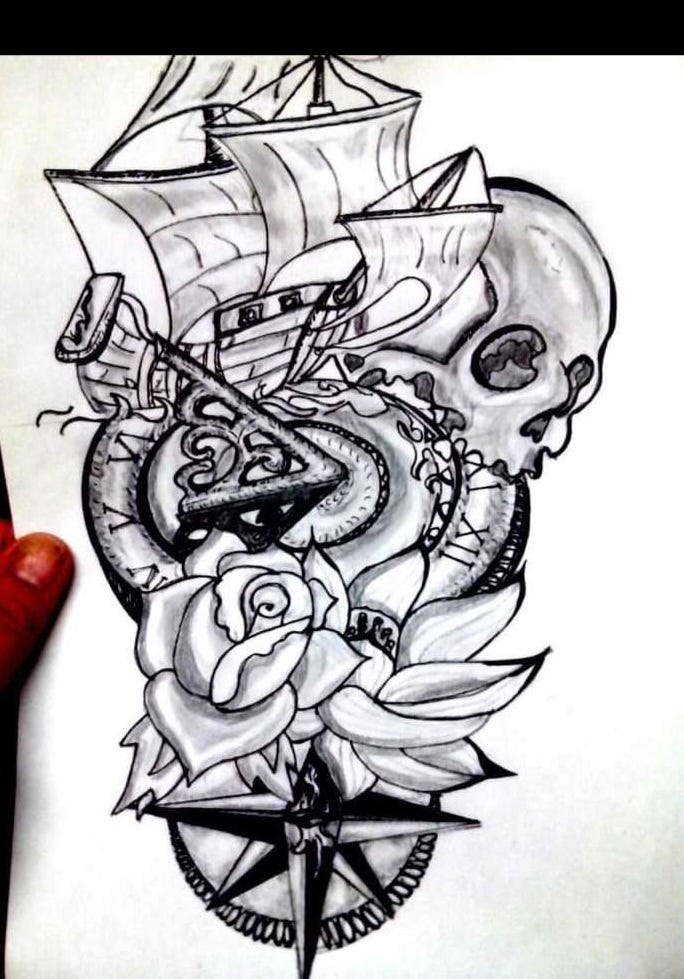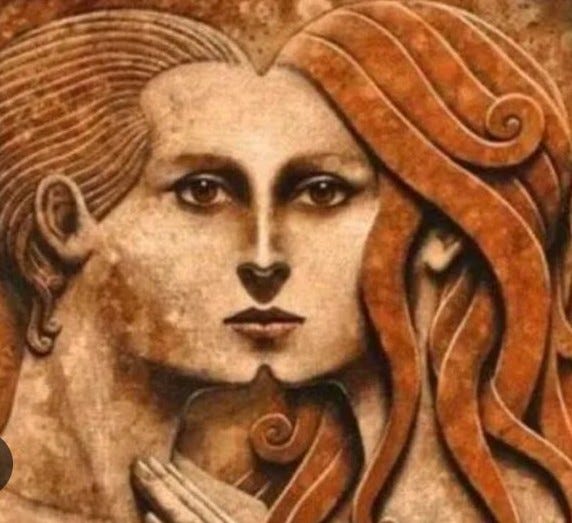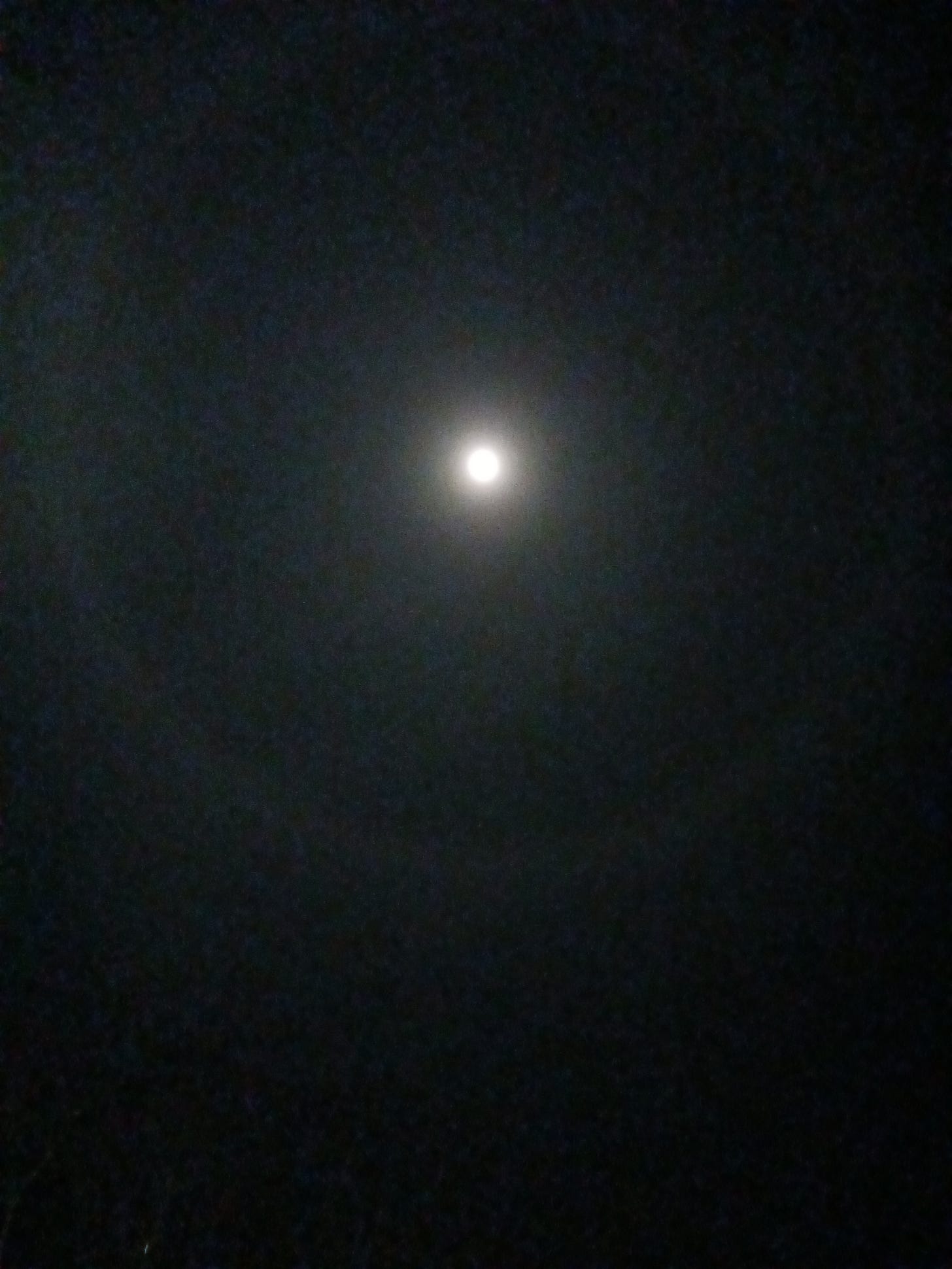A second time I shall taunt you!
A second round of musing over a poem written a quarter century ago and stuffed into a college-ruled notebook paper filled binder on a dresser in a youth now as farspent as a bygone past life of some star crazed lover colliding in and out of existence across the vast empire of far flung centuries.
OK, that was a bit much! But I do want to take another look at the poem Loss of Narrative written in my late adolescence as a meditation on adolescence. In the first look we saw the overall contour of thought, “I have no idea what life is or how to do it, but I better figure it out quickly” and explored how this reality of not just me then, but of most youths now, relates to the shifts within society. And of course, how those shifts are rectified by embracing the traditional mindset. And better yet, rectified unto something that leads to salvation of the soul when being traditionally oriented towards Jesus Christ. ☦️
But here we shall zoom in and look at the nuanced and almost vague references to twin flames, the devil within and the wisdom gained by insight into the mysteries of the human soul.
LOSS OF NARRATIVE
there was he, loss and upon the knee
Young like sprouting vine
Vanquished of youth's slow shine
His eyes full of wraith-scorn
Melodies and lullabies of consistencies out worn
'twas no East
No West defined
Wrath and irk polluted up and dammed the channels of the mind
This wayward, lost not
Inward twisting knot
Upon the way of small and grim
That the branch of life is bitter in it, each and every limb
Young squire salute this night
Rise in dessert's dry
To eat not its dust nor sound its mournful cry
Where is your gone piece?
Where doth burn your twin's flame, that she and thee are not the same?
When was this devil in you born?
That away from which you're but torn
He takes the wisdom of this and plans to carry on
Though he feels the stakes are rising
And he is still alone
He the tortured tower climb
He that in his bowels has the words
But no tempo, as yet no rhyme
The wind and hail
The wood and nail
Hurricane of terror with blissful eye
Upon the tower there one of his natures must now die.
☆ ● ☆ ● ☆
Where is your gone piece? Where doth burn your twin's flame, that she and thee are not the same? When was this devil in you born? That away from which you're but torn?
And Elohim created the man in His image, in the image of Elohim He created him – male and female He created them. Gen 1:27
Male and female he created them, and he blessed them and named them Man when they were created. Gen 5:2
“Love is composed of a single soul inhabiting two bodies.” -Aristotle
“According to Greek mythology, humans were originally created with four arms, four legs and a head with two faces. Fearing their power, Zeus split them into two separate parts, condemning them to spend their lives in search of their other halves.” -Plato (Symposium)
The twin soul, the merits of which are not going to be discussed here, is a vivid symbol in our culture of a deep longing for connection and stability. In its better understanding it is also a symbol of growth, of the evolution of the soul. Blossoming into potentialities hitherto unknown. We say things like ‘My better half’ when referring to a significant other. We may have been struck stary eyed wondering is he/she ‘the one’. The Platonic notion is in the fabric of our thoughts. Some may search through every bar in town, high and low for the ‘the one’, for our souls other half, for our completion, for our champion of growth into what we are destined to become. Our guide into theosis (no, you may not call it by that name -but you are looking for it)!
This is a symbol of the erotic longing; erotic in the sense of deep heart-rooted desire, the type of which the sexual is a manifestation when in chaste purity, a deficient warpage thereof when lust. This is fodder for every wishful romance. And the poem asks a simple question of our young sprouting vine coming into manhood, where is she?
But subtler questions are found like a mist coming off the pond as we raise up that simple question to look under it. Where in the cosmos does she burn? Is it the same flame? Are you and her the same and if so, what is the point of union then? Isn't the same plus the same just the same? Is she a person at all?
The last of these subtler questions the poem asks comes more abruptly. When was this devil in you born? That away from which you are but torn? The question is that of when was this devil (referring back to the bitter lost confused fading shinyness of life in narrative’s loss) was born. But that becomes overshadowed by the suggestion that this very devil of uncertainty and waywardness is like a twin flame, a half of the soul that away from which one is incomplete. That this very difficulty and loss of direction and soul's anguish is itself possibly the romantic partner of the adolescence heart. The search is the connection itself. We explored this idea in part 1 as the theme of chasing the horizon being it's own central myth.
The notion being drawn on here is actually an a theme from a 1966 Star Trek TOS episode titled “The Enemy Within”. In this episode a transporter malfunction splits Captain Kirk into two halves: one meek and indecisive, the other violent and ill tempered. We soon discover that only the integrated Kirk has the ability to function in life. I think new age mombo jumbo calls this the shadow self? I don't know. I'm a Christian. But for me the rage and anguish were being proposed as a necessary part of the recipe of a whole man. It seemed as though the pain of life was needed to be who I was. Pain was part of my identity.
Young squire salute this night Rise in dessert's dry. To eat not its dust nor sound its mournful cry this section began. And having worked backwards we can see why. Questions have been raised about romance, marriage, development, integration of personality, fate, the structure and nature of the human soul.
-And if you can't see all these questions, they are buried in the small infinity of the verses we have so far explored. You see numbers can go up forever and thats a large infinity. But between every integer we can divide each section of the number line into an infinite number of fractions. 1/2, 1/4, 1/8, 1/16… That's a tiny infinity only the width of single integer.-
But these questions, after all, function as the very impetus to development and connection that the twin flame is supposed to give, so salute this night! …The dark night of the soul.
He takes the wisdom of this and plans to carry on.
Wait? What wisdom? There were questions. There were no answers. Even the commentary came to no real conclusions, you'll say. Well, no. The commentary came to no conclusions because the poem itself believed the questions, or better stated the questioning to be wisdom on its own. We can infer a rhetorical mechanism in which the poet is saying for sure that he must integrate the aggressive and submissive aspects of his personality. But really? Does anything about any part of this poem suggest any confidence ever? No. It gets close to several locations, but never arrives.
In calculus we have the idea of limits. An equation growing and compounding as a key component draws nearer and nearer to a limit, but NEVER gets there. The gap under the curve is never known, but ever closer approximated.
This is the wisdom the adolescent takes with him to climb the cross! Ever increasing in understanding and growing and questioning and redefining himself but never drawing closed the search and settling for less than unreachable perfection. This is theosis! This is reaching for Sophia. The search of wisdom. The desire of the souls true flame… the Logos. The hidden wisdom behind the forms. This is not the chasing the horizon of the youth before the wisdom hit.
The horizon was the alluring beauty of the endless passions. As soon as you get there, to the horizon, it just looks like everything else and the horizon has evaded you again. It's again somewhere else. Chasing your own tail. But chasing Sophia is ever being perfected but never perfect. It's not chasing the passions across the plains to every horizon of delusion. It's climbing the tortured tower of the cross and dying their to that horizon chasing nature. And O how the search for Sophia is an adventure!
TO CHASE A MUSE
I vowed to know you lady
your image passed through the line
I sought to hold you in dissipating memoirs
in lapse, faded tapestries of yore
I chased your image in sorted groves
knelt beside cowards praying
knew the pulsing winds of lungs
the choir haunting thereby still swaying
up through mountain crests
down in valleys low
I slipped the bartender cash
but your whereabouts he didn't even know
across matchless sky
under every river in every flowing spring
across the great chasm and divide
I let forth your name to ring
the labradors lapped up the seven oceans
the old men relegated to the life of elders' ease
but I searched eternity's keep
I never stopped searching for my maiden's peace.




